T Is For Tiny: Integrating T-Gauge Trains Into a LEGO Build
Today’s guest article comes from Warren Elsmore, a lifelong LEGO fan and professional brick artist based in Edinburgh, UK. You can find him on his website and Instagram.
T-Gauge Trains
Caution: Non-LEGO parts ahead!
I suspect most of us have some sort of hobby aside from being an AFOL. For me, I’ve always had a bit of an interest in model railways. Not that I’ve had one since I was 8 – but I’ve always enjoyed watching them. I suspect that influenced the choice of my first MOC made as an adult – which was of a GNER east coast train here in the UK.
One of the first AFOL friends I made, however, is based nearby in Scotland and is very much into LEGO trains. David Graham’s AFOL-ness (is that a word?) is a bit different, though, as he attends local model railway shows with his LEGO trains. Unlike all of the other model layouts - he lets the kids drive all the trains - and, of course, it’s very popular! In fact, he’s attended well over 100 such shows over the years and has even won a couple of awards for his display.
Naturally, I’ve been to a couple of the model railway shows with him and that’s where I first found out about T Gauge. First developed in Japan, T Gauge layouts solve one of the big problems of L gauge (i.e., normal LEGO) train displays. Namely that they are much smaller. Much, MUCH smaller. In fact, they are the smallest commercially available model trains. The ‘T’ stands for the distance between the tracks - 3mm or 1/8” for those in the US. This makes the trains a scale of 1:450 or 480, 10 times smaller than LEGO trains!!
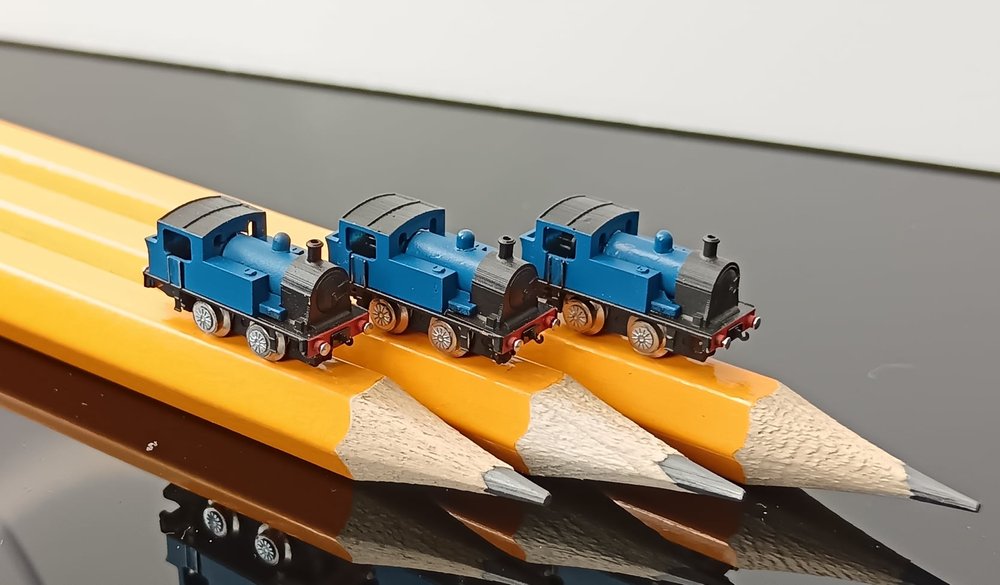
Image via tgauge.com
The really cool thing (to me) about T Gauge is that this is a real model railway. The power comes via the tracks. The engines have real motors in them with real bogies (‘trucks’ in the USA) and they have real (tiny) couplings. I am told that the electric motors used in these are the same that provide the vibrate function on your smartphone. The only thing to remember is just how small these trains are. To connect the couplers, you need a good pair of fine-point tweezers.
LEGO Scale and T Scale
I’ve been looking for an excuse to buy a set for many years, but eventually, a thought crossed my mind. T Gauge is 1:450, and LEGO minifigures are around 1:45, which makes T Gauge trains about 1:10 equivalents for my minifigures. That puts them roughly in the scale of garden railways.
So I had enough of an excuse to buy a starter set, and as soon as I picked it up from TGauge.com (who are luckily based about 2 miles from our house!) I knew there was one test I needed to do. Would it fit through a 1x3 arch?
Yes! So now all I needed to do was to make the MOC happen. Having sat on this idea for literally years… could I make it happen before anyone else had the same idea?
A Tiny Train Garden Layout
Say hello to a LEGO model - of a model railway! For any of you who know Edinburgh, Scotland, the cottage is loosely based on the one in Princes St. Gardens - but otherwise, it’s pure fantasy. It’s safe to say that this wasn’t the easiest model to make! As soon as I realised that a garden railway would work, I decided it would be best to lean into that setup.
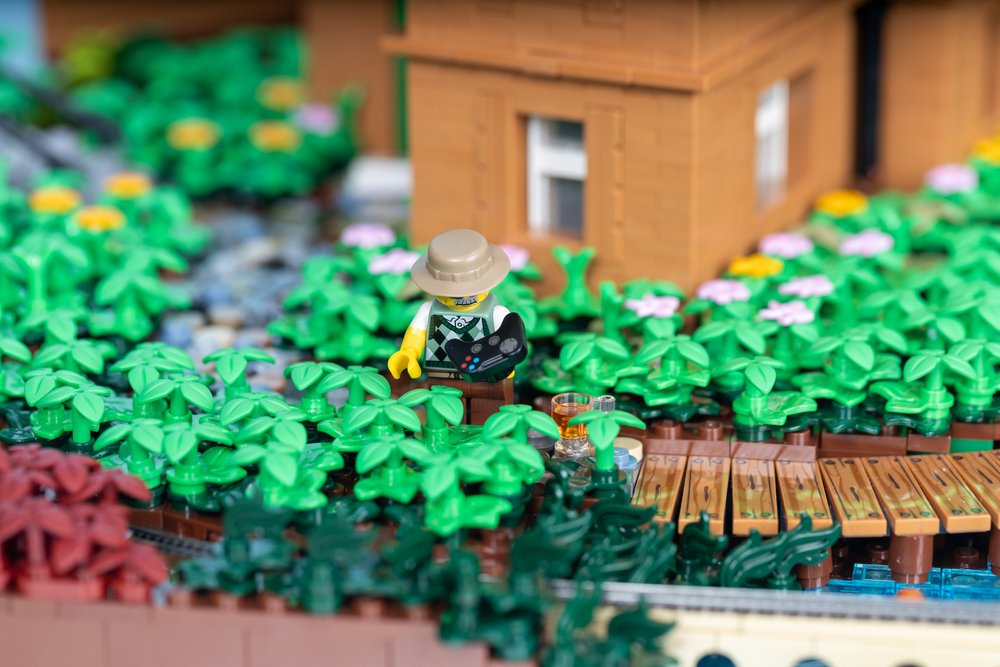
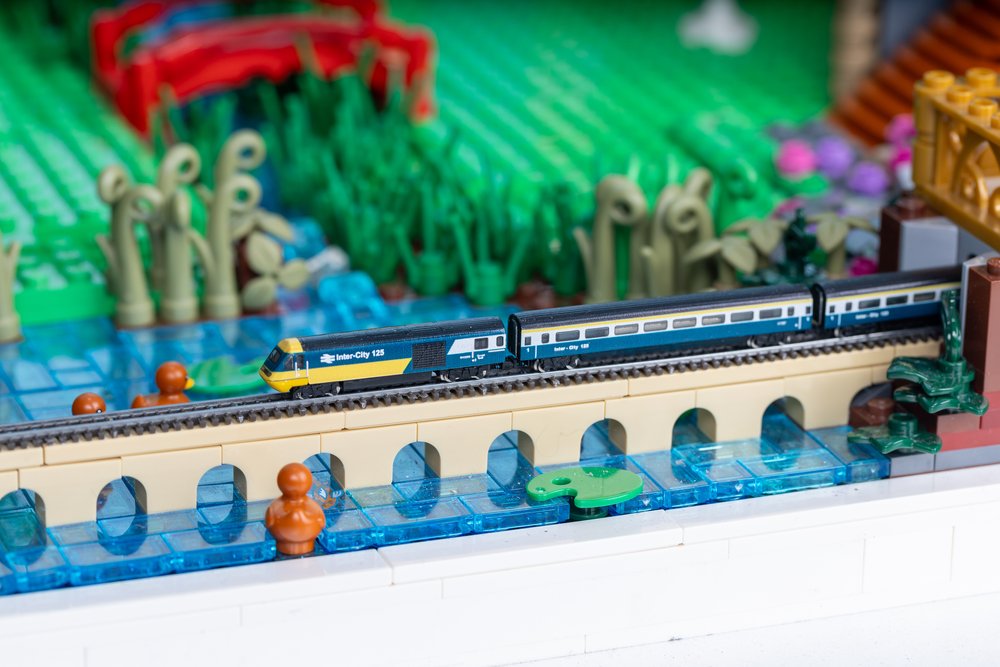
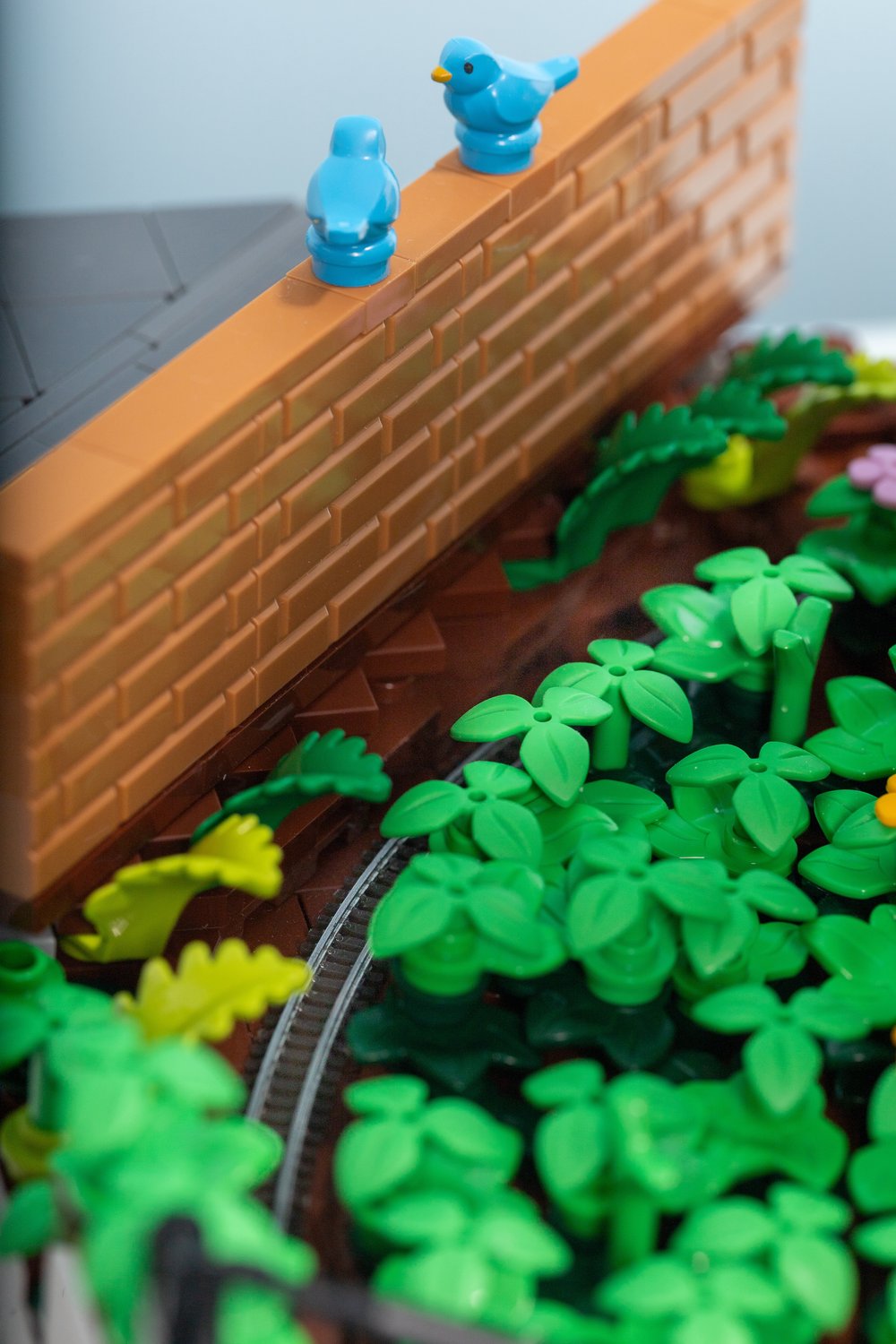
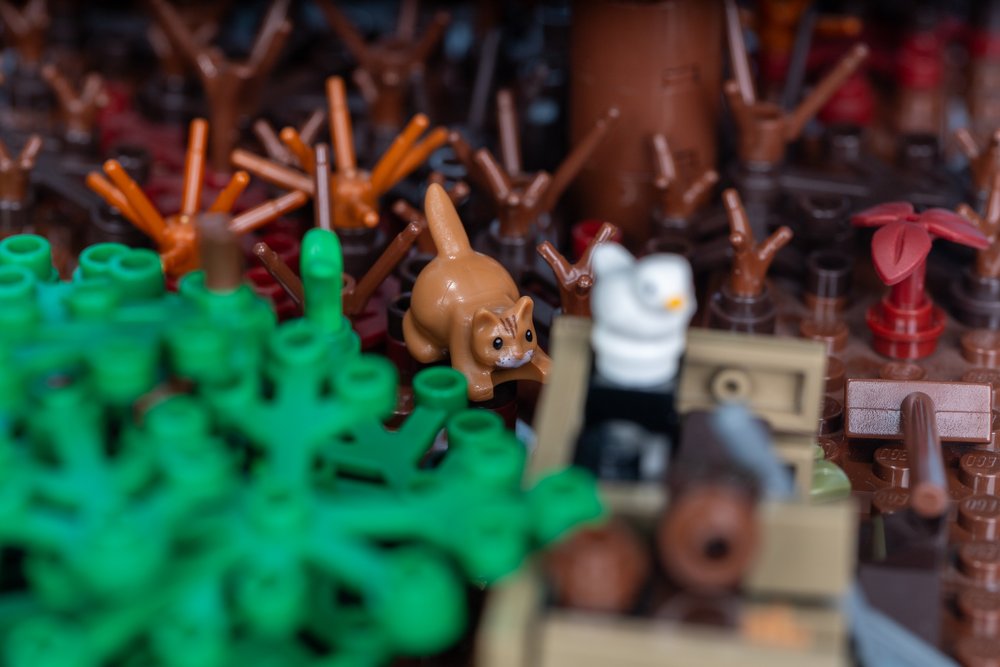
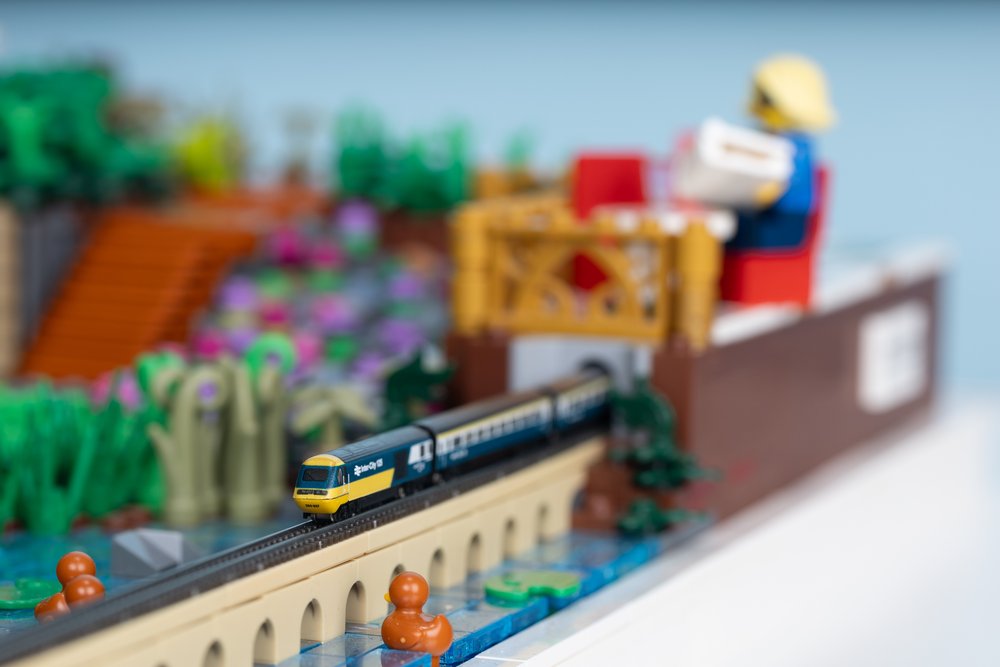
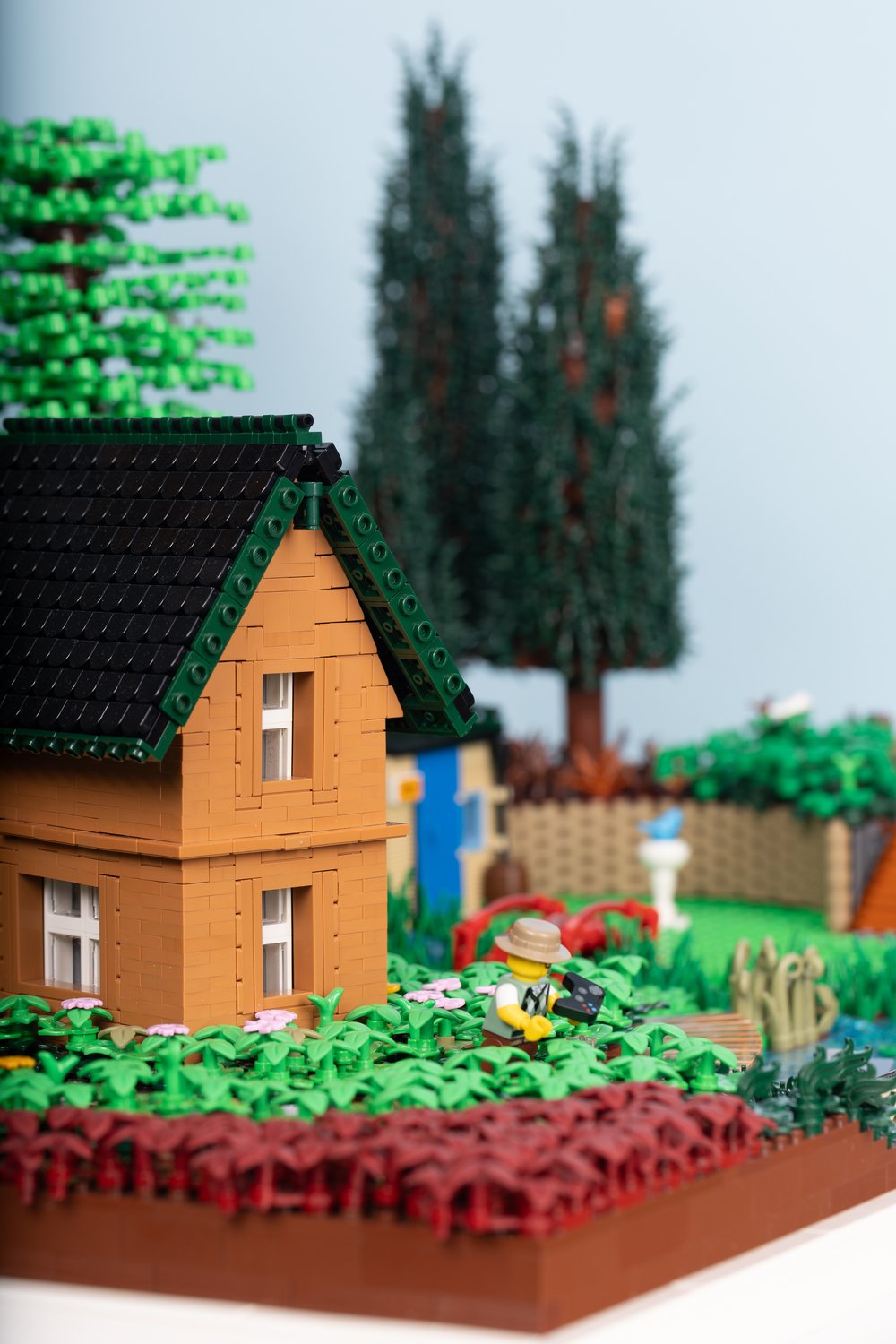
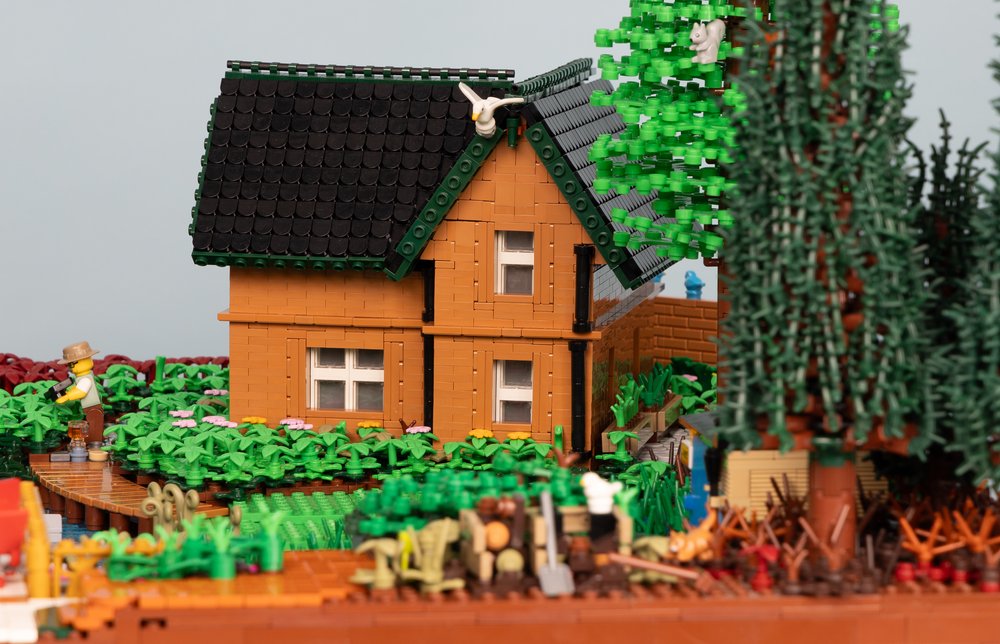
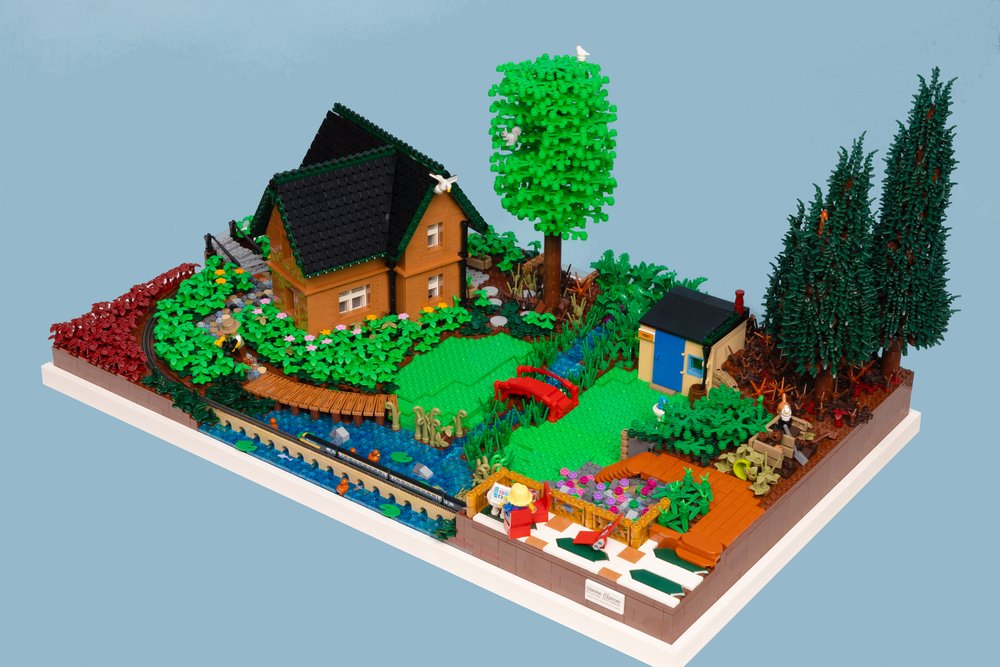
I decided early on that I wanted to make the garden railway look as ‘real’ as possible – with plants hanging over the railway tracks. This wasn’t going to be the easiest thing, though, so I thought the actual track layout should be simple. A basic loop it would be.
View fullsize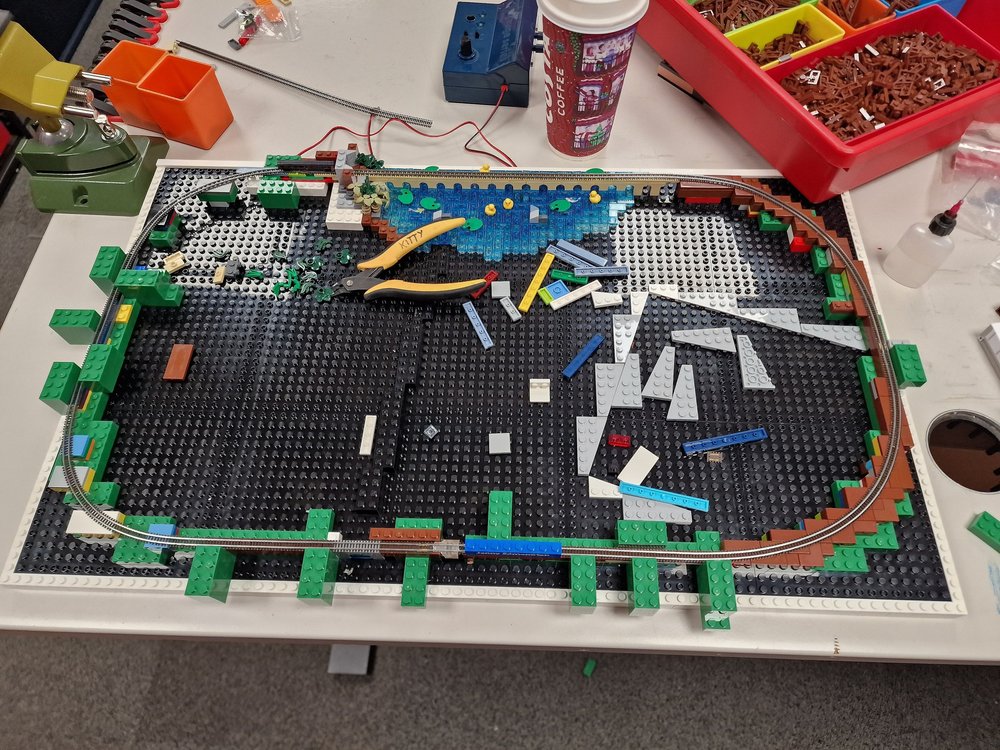
I soon found that the standard track would be too wide for my 1x3 arch, but the flexible track would work really well. I would, however, need to fix that down. Purists, please look away because I tried the first thing available to a professional LEGO builder… It turns out that the same solvent we use to bond bricks together (MEK) will very easily bond track down to tiles! At least it’s not going to move anywhere…
Running the trains through cuttings, tunnels and under bushes presented its own problems though. There’s no running gauge or standard for this - so it was a lot of trial and error. At one point I even had to build around running trains for a while to check they would still clear all the wedge plates and foliage!
View fullsize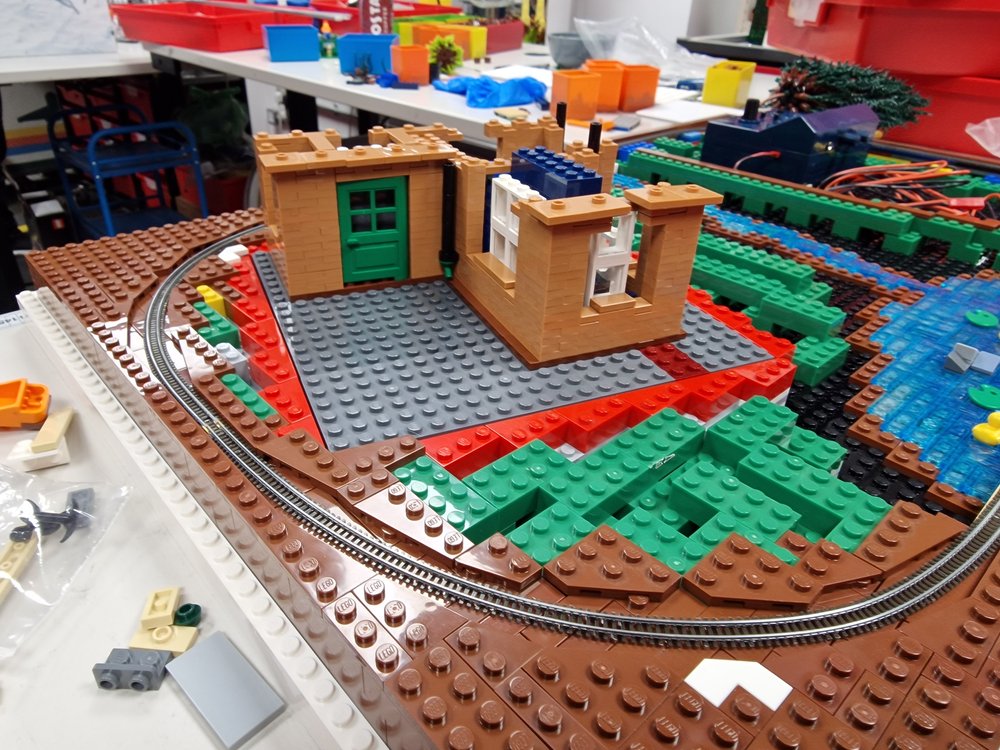
Interacting with Tiny Trains
With the layout coming together, I decided that I wanted to make it interactive at shows. Rather than just leave the trains running all day – I’d give children (and adults) the chance to ‘drive’ the trains just like David did on his layout. Again, leaning into a simple solution, I spliced a toggle switch into the control circuit. So, the trains will only move when someone has their finger on the button. This would also mean that they weren’t running eight hours a day: no one could tell me how resilient the trains actually are! Purists, look away again, as I printed up an 8x16 tile with some instructions – then cut a hole in it.*
*It turned out that cutting a very exact 16mm hole, precisely where I wanted it, was not as easy as I’d thought. But that’s a story for another day…
View fullsize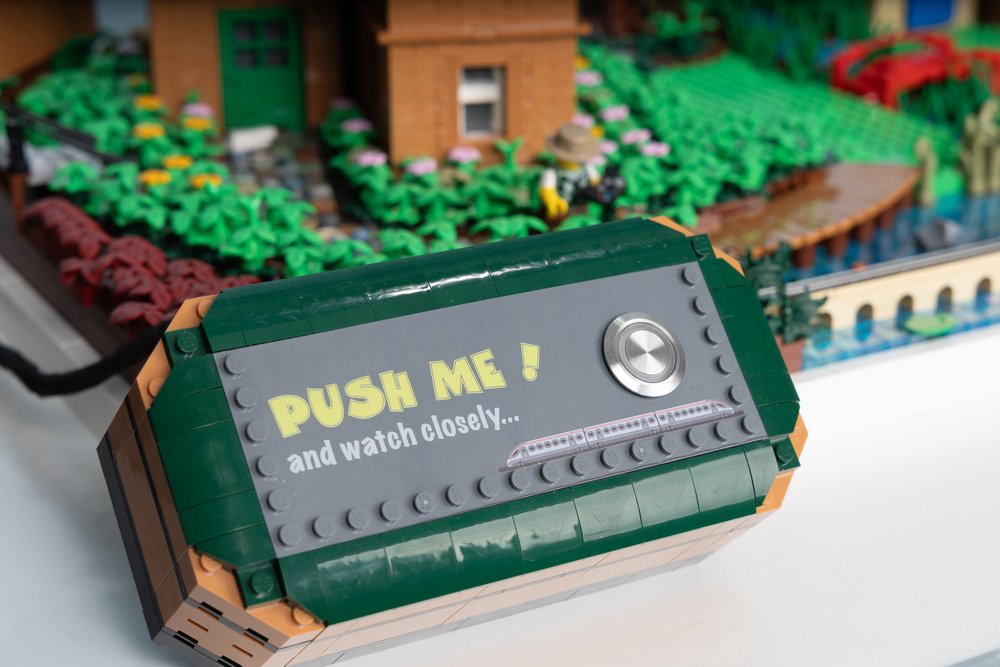
Next, I added a garden cottage, as well as a garden shed, and then started to add lots of foliage. I have to thank my wife Teresa for this part. BrickNerd readers will know that she’s a much more experienced garden builder than I am!
Before I finished up the model, it was important to deal with derailments. Let’s face it, they are going to happen. And when derailments happen – they will, of course, be in the most inaccessible place! So I made sure that it’s possible to get to all the tracks. All the tunnel roofs lift off, and the trees come out to gain access. Of course, that also helps with packing down at the end of the day.
View fullsize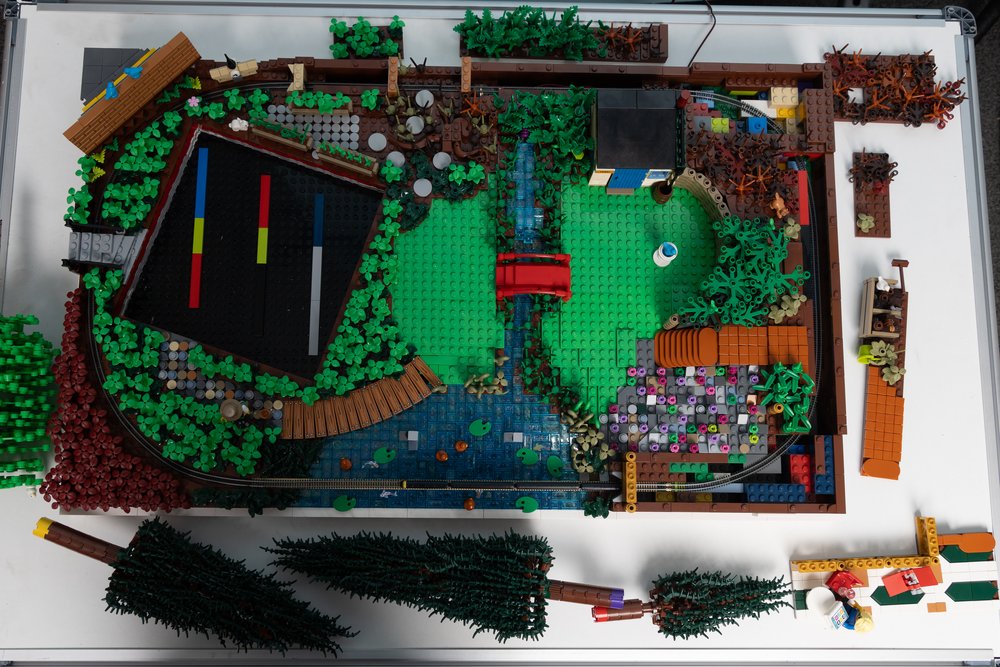
TLC for T-Gauge
So, how does it run? Well, surprisingly well if I’m honest. So far the display has been to Skaerbaek Fan Weekend and Brickmania in Antwerp. It will go to a lot of Scottish shows next year as well – and Bricktastic in Manchester. Having said that, it does need a little bit of TLC.
At this scale, anything (and I mean ANYthing) will cause a derailment or a power problem. Forget problems caused by leaves on the line – a LEGO leaf element here will derail the entire train! Too much dust, random hairs, a random breeze – they can all cause a big problem. The track itself oxides very quickly, so it’s necessary to clean the entire track at every show. Of course, I didn’t help myself here by burying most of the track so that takes 1-2 hrs of scrubbing with emery boards and isopropyl alcohol at every show.
With all that said, though, I’m so far averaging only one derailment a day when on public display—not too bad if I’m honest. I can almost re-rail it with the naked eye now, too. I do have other plans for more ‘tiny train’ layouts, but these will probably have to wait a bit longer yet. For one thing, I’ll need to design my own T gauge trains – as the ones I want don’t exist yet!
Would you build a T-Gauge layout for a tiny train? Let us know in the comments below.
Do you want to help BrickNerd continue publishing articles like this one? Become a top patron like Marc & Liz Puleo, Paige Mueller, Rob Klingberg from Brickstuff, John & Joshua Hanlon from Beyond the Brick, Megan Lum, Andy Price, Lukas Kurth from StoneWars, Wayne Tyler, LeAnna Taylor, Monica Innis, Dan Church, Roxanne Baxter, and Steven Laughlin to show your support, get early access, exclusive swag and more.

